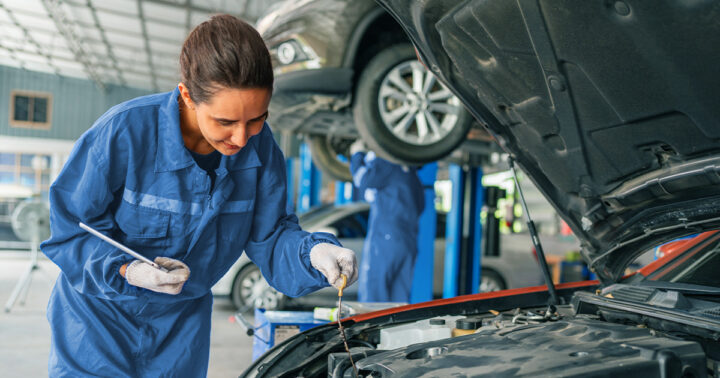Understanding the Meaning of Fixed Ops in Automotive Dealerships
What is the Meaning of Fixed Ops?
The automotive industry is a complex network of departments working together to ensure seamless operations and profitability. One of the critical components of this network is “Fixed Ops,” a term that refers to fixed operations within a car dealership. Understanding the intricacies of fixed ops is essential for anyone involved in the automotive business, and this article aims to explore that in detail.
Within this framework, we will discuss the role of a fixed operations manager, the meaning of fixed coverage, the responsibilities of a fixed operations director, and the distinction between fixed and variable operations. Additionally, we will guide you on how to become a fixed ops director, delving into what variable operations entail, and wrapping up with a comprehensive look at fixed ops. Let’s start by exploring what fixed ops entail in the automotive industry.
In this article, you will learn:
- What does a Fixed Operations Manager do in Automotive?
- What Are Fixed Ops in Automotive?
- What Is Fixed Coverage in a Dealership?
- What Does a Fixed Operations Director Do at a Car Dealership?
- What Is the Difference Between Fixed Ops and Variable Ops?
- How to Become a Fixed Ops Director
- What Is Variable Operations in Automotive?
- What Is a Fixed Ops?
What does a Fixed Operations Manager do in Automotive?
A Fixed Operations Manager is a pivotal figure in a car dealership, responsible for overseeing the service and parts departments. Their primary role is to ensure that these departments run smoothly and profitably. They manage the workflow in the service area, supervise the parts inventory, and set goals for performance metrics such as customer satisfaction and revenue generation. The Fixed Operations Manager also plays a crucial role in staff training, ensuring that all team members are equipped with the skills necessary to provide excellent service and maximize profitability. By maintaining efficient operations, the Fixed Operations Manager contributes significantly to the dealership’s success.
 Key Responsibilities of a Fixed Operations Manager include:
Key Responsibilities of a Fixed Operations Manager include:
- Staff Management: Playing a crucial role in staff training to ensure team members have the skills necessary to perform their roles.
- Financial Management: Overseeing the efficient and profitable operation of the service and parts departments is a central responsibility of a Fixed Operations Manager.
- Customer Service: Managing the high-level workflow in the service area, ensuring smooth and effective operations for customers.
- Operational Efficiency: Setting goals for performance metrics like customer satisfaction and revenue generation to help drive success.
- Cross-Departmental Collaboration: Communicating with other departments, such as sales and marketing, along with dealership leaders, to ensure Fixed Ops alignment.
What Are Fixed Ops in Automotive?
Fixed ops, short for fixed operations, refer to the after-sales services provided by a car dealership, encompassing maintenance, repairs, and parts supply. These services are termed “fixed” because they occur on-site at the dealership and represent a consistent source of income. The concept of fixed operations is central to the dealership model, ensuring customer retention through excellent service, which in turn provides a steady revenue stream.
What Is Fixed Coverage in a Dealership?
Fixed coverage in a dealership relates to the range of services and parts available to customers after the initial vehicle purchase. This includes routine maintenance, repair services, and replacement parts. The fixed ops meaning automotive context focuses on ensuring that customers have access to reliable services that enhance their ownership experience. By offering comprehensive fixed coverage, dealerships not only retain customers, but also attract new ones, building a reputation for reliability and excellent service.

What Does a Fixed Operations Director Do at a Car Dealership?
The role of a Fixed Operations Director involves overseeing the entire fixed operations segment within a dealership, which includes the crucial service and parts departments. This position requires a unique blend of leadership skills, strategic planning capabilities, and deep industry knowledge to effectively optimize these departments’ performance. The director oversees several key areas within the Fixed Ops department, including:
- Setting financial goals: The director must analyze financial data to set realistic and ambitious financial targets, ensuring the dealership meets or exceeds these targets while remaining competitive in the market.
- Developing marketing strategies: This involves creating comprehensive marketing plans that highlight the dealership’s service and parts offerings, attract new customers, and retain existing ones by emphasizing the quality and value provided.
- Implementing process improvements: The director identifies areas for improvement within the service and parts operations, and develops strategies to enhance efficiency, streamline workflows, and reduce operational costs.
Each of these efforts is directed toward boosting efficiency and profitability. By leveraging their expertise and insights, the Fixed Operations Director ensures that the dealership not only delivers exceptional customer service, but also maintains high standards of quality. This approach is essential for achieving revenue targets and sustaining long-term growth. Additionally, the director must stay informed about the latest industry trends and technological advancements to keep the dealership ahead of competitors, continually refining operations to meet evolving customer needs and expectations.
The significance of fixed ops is their ability to foster long-term relationships with customers. By offering reliable and efficient service, dealerships can encourage customers to return for all their maintenance and repair needs, thereby solidifying loyalty and trust. Additionally, dealerships often invest in training skilled technicians and using high-quality parts, which enhances service credibility and customer satisfaction.
In a car dealership, “fixed ops” refer to the crucial role of service and parts departments. These departments not only ensure that customer vehicles are well-maintained, but also play a key role in boosting long-term profitability. By focusing on exceptional service delivery, dealerships can differentiate themselves in a competitive market, ultimately enhancing their reputation and financial performance. As the automotive industry evolves, fixed operations continue to adapt, incorporating new technologies and practices to meet changing consumer expectations and vehicle advancements.
What Is the Difference Between the Meaning of Fixed Ops and Variable Ops?
Fixed operations and variable operations are two distinct aspects of a car dealership’s business model. Fixed operations, as discussed, include services and parts sales that continue to generate revenue after the initial sale of a vehicle. In contrast, variable operations pertain to the sales of new and used vehicles. While variable operations drive immediate income through vehicle sales, fixed operations provide ongoing revenue streams and customer engagement. Understanding what are fixed operations enables dealerships to balance these two aspects effectively, ensuring long-term business growth and sustainability.

Fixed Operations Meaning vs. Variable Operations Meaning in Automotive
Fixed Operations Meaning:
- Includes service and parts departments
- Revenue comes from customer paid maintenance and repairs, in addition to warranty work
- Maintains a higher profit margin compared to variable operations
Variable Operations Meaning:
- Includes car sales, used car sales, finance, and insurance
- Revenue comes from selling new and used vehicles, in addition to financial products
- Profitability can fluctuate based on market conditions and inventory levels
How to Become a Fixed Ops Director
For those aspiring to become a Fixed Ops Director, a combination of experience, education, and skills is essential to succeed in this competitive field. Typically, candidates should have extensive experience in automotive fixed operations, showcasing their ability to manage both service and parts departments effectively. This experience might include roles such as service manager or parts manager, where one can develop a deep understanding of the day-to-day operations and strategic planning required at higher levels. Pursuing relevant qualifications, such as a degree in automotive management, business administration, or even specialized certifications in automotive technology, can also be beneficial in providing a strong theoretical foundation.
Automotive Fixed Operations Director positions often demand strong leadership skills, strategic thinking, and the ability to swiftly adapt to evolving industry trends, such as advancements in automotive technology and shifts in consumer expectations. Developing these skills may involve leadership training seminars or courses that focus on strategic management and innovation. Furthermore, networking within the industry, through attending automotive conferences and joining professional organizations, and gaining mentorship from seasoned professionals can significantly enhance one’s career prospects. Building a solid professional network can open doors to opportunities and provide valuable insights into industry best practices and emerging trends.
Key Responsibilities of a Fixed Ops Director:
- Prepare the annual operating budget, set goals and objectives for each department, and monitor their performance.
- Oversee the hiring and training of managers for the service, parts, and body departments.
- Collaborate with department managers to enhance profitability and efficiency.
- Foster positive customer relationships by ensuring staff are helpful and prioritize customer satisfaction to encourage referrals and repeat business.
- Work directly with customers and warranty clerks to manage warranty claims, adhering to warranty guidelines.
- Develop dealership service and pricing policies for general manager approval.
- Ensure service repairs are executed efficiently and accurately.
What Is Variable Operations in Automotive?
Variable operations in automotive refer to the sales aspect of a dealership, encompassing the sale of both new and used vehicles. This side of the business is crucial for initial revenue generation and involves a wide range of activities, such as marketing strategies to attract potential buyers, customer relationship management to ensure satisfaction, and skillful sales negotiations to close deals effectively. The success of variable operations hinges on the dealership’s ability to draw in customers through effective advertising, offer competitive pricing that stands out in the marketplace, and provide exceptional, personalized service during the sales process to secure repeat business.
Furthermore, variable operations must adapt to additional factors such as fluctuating market conditions and inventory availability, which can significantly impact sales performance. For instance, shifts in consumer demand, economic trends, and even technological advancements in automotive design can all influence buying decisions. A dealership that remains agile and responsive to these external influences is more likely to thrive.
While the primary focus of variable operations is on immediate sales and generating quick revenue, these efforts are intrinsically linked with fixed operations—such as maintenance and repair services—to build long-term customer loyalty. By maintaining strong relationships with customers during the sales process, dealerships lay the groundwork for continued engagement, encouraging customers to return for service needs, thereby fostering a cycle of trust and repeat business. This holistic approach ensures that the dealership not only meets immediate financial goals but also secures sustained success over time.
What Is a Fixed Ops?
In the automotive industry, fixed ops are essential for a dealership’s success, contributing significantly to its overall performance and customer satisfaction. The term “fixed ops” encompasses all activities related to vehicle servicing and parts management, including routine maintenance, repairs, and parts replacement. These services are vital not only for customer satisfaction but also for customer retention, as they foster long-term relationships and trust.
Understanding what fixed ops mean in the automotive sector requires recognizing the ongoing relationship between the dealership and its customers post-purchase. This relationship is built on providing consistent, high-quality service and ensuring that customers’ vehicles remain in excellent condition. By emphasizing the importance of fixed ops and implementing best practices, such as efficient scheduling, skilled technicians, and transparent communication, dealerships can enhance their reputation, increase profitability, and sustain business growth.
Moreover, investing in technology and tools to streamline operations can further improve service efficiency and customer experience, solidifying the dealership’s position in a competitive market.
Conclusion
Understanding fixed operations, often referred to as “fixed ops,” is crucial to maximizing a dealership’s profitability and ensuring high levels of customer satisfaction. Fixed ops encompass the service, parts, and maintenance departments within a dealership, which are pivotal in creating a consistent and reliable income stream. Effectively managing these departments not only boosts revenue but also fosters long-term relationships with customers, as they return for trusted and efficient services.
As the automotive industry continues to experience rapid changes with technological advancements and shifting consumer preferences, staying informed and adapting to new trends in fixed ops will become increasingly important for maintaining a competitive edge. Dealerships that prioritize continuous improvement in their fixed operations are better positioned to thrive in this dynamic environment.
For more detailed insights into enhancing your dealership’s operations and understanding the nuances of fixed ops, explore our comprehensive resources on Fixed Ops meaning and profitability. These resources will guide you in taking the next steps toward optimizing your business and achieving sustained success in the ever-evolving automotive market.